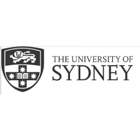- اخبار و مقالات
- Find usIDP AustraliaIDP BahrainIDP BangladeshIDP CambodiaIDP CanadaIDP ChinaIDP EgyptIDP GhanaIDP Hong KongIDP IndiaIDP IndonesiaIDP IranIDP JordanIDP KenyaIDP KoreaIDP KuwaitIDP LebanonIDP MalaysiaIDP MauritiusIDP Middle EastIDP NepalIDP New ZealandIDP NigeriaIDP OmanIDP PakistanIDP PhilippinesIDP Saudi ArabiaIDP SingaporeIDP Sri LankaIDP TaiwanIDP ThailandIDP TurkeyIDP UAEIDP VietnamIDP Corporate
- Social
- فارسی
- Where we operate
- Courses
- Scholarships
- IELTS
- About IDP
- Arrival services
- Arrival services
- Money transfer
- Student health cover
- Student banking
- Accommodation
- اخبار و مقالات
- Find us
- Find us
- Find nearest IDP offices
- IDP Australia
- IDP Bahrain
- IDP Bangladesh
- IDP Cambodia
- IDP Canada
- IDP China
- IDP Egypt
- IDP Ghana
- IDP Hong Kong
- IDP India
- IDP Indonesia
- IDP Iran
- IDP Jordan
- IDP Kenya
- IDP Korea
- IDP Kuwait
- IDP Lebanon
- IDP Malaysia
- IDP Mauritius
- IDP Middle East
- IDP Nepal
- IDP New Zealand
- IDP Nigeria
- IDP Oman
- IDP Pakistan
- IDP Philippines
- IDP Saudi Arabia
- IDP Singapore
- IDP Sri Lanka
- IDP Taiwan
- IDP Thailand
- IDP Turkey
- IDP UAE
- IDP Vietnam
- IDP Corporate
- Social
- LANGUAGE_SWITCHER
- آموزش IDP /
- کالج ها و دانشگاه ها /
- Australia /
- The University of Sydney /
- Bachelor of Science and Mas...

Bachelor of Science and Master of Nutrition and Dietetics - Statistics
At THE UNIVERSITY OF SYDNEY
Location
Australia
صلاحیت
Dual Degree
شهریه ها
AUD56000
(2025)
مدت زمان
5 Year(s)
پذیرش بعدی
17 February 2025
امتیاز ورود
7.0
آیلتسCOURSE_INFO
Statistics is pervasive in all areas of the sciences, the social sciences, finance and business, and is the key paradigm used to assess the strength of evidence from all kinds of data. In a statistics major, students learn about theoretical, computational, and applied statistics, and probability theory. As part of the major students will apply the techniques that they learn to a variety of of applications. Students learn about quantifying uncertainty, experimental design, probabilistic modelling and the latest techniques in statistical and machine learning. This major is essential training if you wish to become a professional statistician. A major in statistics is not only a pathway to professional employment as a statistician, but an invaluable adjunct to your career in any area. Graduating with a major in statistics and another science area enhances your value to prospective employers and is an excellent foundation for all types of scientific research.
- کمک هزینه تحصیلی کمک هزینه ی تحصیلی
- دوره های کارآموزی
هزینه دوره ها یک شاخص است و باید به عنوان راهنما مورد استفاده قرار گیرد گرفتن اطلاعات دقیق عزینه
Duration: 5 Year(s)
Fees: AUD56000
| پذیرش | Location |
|---|---|
| Semester 1 (February), 2026 | Camperdown |
| Semester 1 (February), 2025 | Camperdown |
نیازمندی های ورود به The University of Sydney
IELTS score A minimum result of 7.0 overall and a minimum result of 6.5 in each band
TOEFL - IBT score A minimum result of 96 overall including a minimum result of 20 in Reading, Listening and Speaking and 22 in Writing
A secondary education qualification such as the NSW Higher School Certificate (including national and international equivalents), OR approved higher education study, including approved preparation courses.
ددلاین اپلیکیشن
تاریخ ددلاین مشخص نیست با یک مشاور IDP صحبت کنید برای اطلاعات بیشتر
Further information
If you aren't eligible for the above entry requirements, you might ant to explore pathway options at The University of Sydney. If you want to find out more, speak to our counsellors.
رتبه جهانی
61st / 1250
رتبه جهانیدانش اموزان ما چگونه فکر می کنند؟
هنوز نظری در مورد این موسسه دریافت نکرده ایم
پیشنهادات برای شما
- کارشناسی
- Australia
- نوع کمک هزینه تحصیلی: Fee waiver/discount
- کارشناسی
- Australia
- نوع کمک هزینه تحصیلی: Fee waiver/discount
- کارشناسی
- Australia
- DEADLINE: 11 Feb 2025
- نوع کمک هزینه تحصیلی: Fee waiver/discount
- کارشناسی
- Australia
- نوع کمک هزینه تحصیلی: Fee waiver/discount
- کارشناسی
- Australia
- نوع کمک هزینه تحصیلی: Fee waiver/discount
- کارشناسی
- Australia
- نوع کمک هزینه تحصیلی: Fee waiver/discount
- کارشناسی
- Australia
- نوع کمک هزینه تحصیلی: Fee waiver/discount
- کارشناسی
- Australia
- نوع کمک هزینه تحصیلی: Fee waiver/discount
Your action plan
گام 1
Shortlist your courses
Choose the best three courses you’re most likely to pursue.
گام 2
Check your eligibility
Get an instant in-principle offer for courses with the IDP FastLane tag.
گام 3
Apply through IDP Live
Fill out the form once and use it to apply to multiple courses.
اپلیکیشن فست لین IDP چگونه کار می کند؟
با "پذیرش مشروط" FastLane ظرف چند دقیقه می توانید در مورد پذیرفته شدن تان در دانشگاه با خبر شوید
یک موسسه یا دوره را انتخاب کنید
یک پروفایل آکادمیک ایجاد کنید
درخواست خود را برای "پیشنهاد مشروط" ارسال کنید
موسسه(ها) مورد نظر تان ظرف مدت چند دقیقه تصمیم خود را به شما اعلام خواهد کرد
برای درخواست پذیرش با کمک یک مشاور آماده شوید




